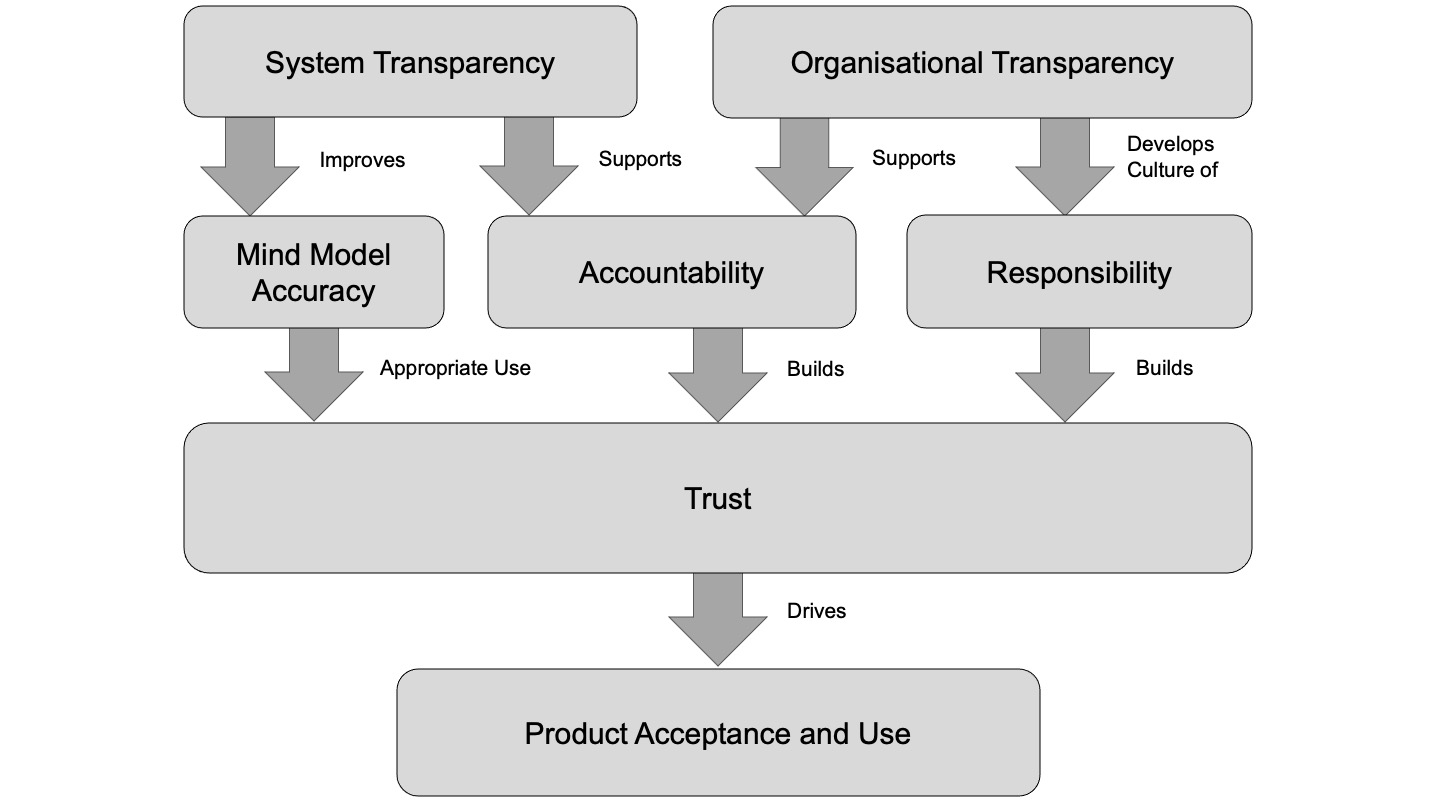In 2020, I wrote about trust within the context of accountability, responsibility and transparency. You can find that content in my book, but here is a diagram outlining how trust is driven by both system and organisational transparency.

More recently, as part of my work with Global Digital Foundation, I’ve been thinking about trust in a much broader context. In an era of significant advancements digital technologies, particularly in AI, the concept of digital trust is emerging as a critical determinant of success and security. As individuals, organisations, and societies increasingly rely on digital platforms for communication, commerce, and collaboration, the importance of fostering trust in these digital interactions cannot be overstated.
Defining Digital Trust
Digital trust, at its core, refers to the confidence and assurance that users place in the reliability, security, and integrity of digital systems, services, and transactions. It encompasses the belief that the digital entities involved will perform as expected, without compromising privacy, confidentiality, or data integrity. Various definitions exist, reflecting the multidimensional nature of digital trust. One commonly accepted definition is the reliance on information systems and technologies that consistently operate as intended, securely handling sensitive data and maintaining user privacy.
Trust, in a broader context, is a fundamental element of human interaction, influencing relationships, decision-making, and societal structures. While digital trust focuses on the online dimension, the foundations of trust are deeply rooted in human psychology and social dynamics. Trust involves the willingness to be vulnerable based on the expectation that others will act in a reliable and responsible manner.
In the global landscape, the significance of trust has been acknowledged in international standards, where trust is often defined as a verifiable expectation. This emphasises the importance of establishing not only subjective confidence but also the capability to verify and validate the factors contributing to that confidence. In the digital domain, this translates to the ability to assess the reliability and security of systems through tangible evidence and transparent practices.
Digital Trust in the context of Geopolitics
Geopolitical factors play a pivotal role in shaping perceptions and influencing global interactions.
One point of concern is the deployment of 5G technology, especially in regions like Europe and the United States. The involvement of Chinese companies in providing 5G infrastructure raises questions about the security and integrity of these systems. While technological advancements promise unprecedented connectivity and efficiency, the geopolitical implications surrounding the adoption of Chinese-developed 5G equipment have led to heightened scrutiny and cautious evaluations in the West.
Another dimension of the digital trust landscape involves export restrictions on critical technologies. Several countries, particularly the United States, have imposed limitations on exporting certain technologies to China. This contributes to a complex trade environment, fostering discussions about technology flow, security implications, and the broader implications of such measures on international collaboration.
This year, I’m looking forward to studying digital trust in more depth, and engaging with experts in the field. I’m sure this will result in more posts on the topic here, combined with outputs that you’ll find on the Foundation web site.

What are the key concerns and considerations surrounding the deployment of 5G technology in regions like Europe and the United States, particularly with the involvement of Chinese companies in providing 5G infrastructure? regard Telkom University